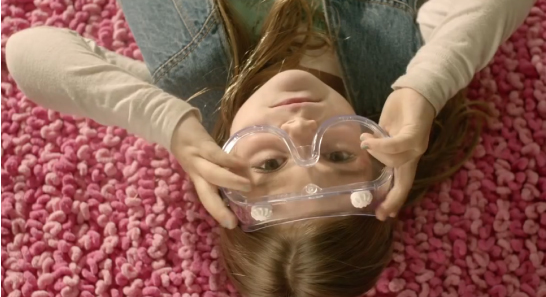
The brief flare-up between local startup GoldieBlox and the Beastie Boys appears extinguished. Last week, GoldieBlox released an adorable video for its “engineering toys for girls,” which played new lyrics over the Beastie Boys’ 1986 hit song “Girls.” The video, which shows young girls triggering a complicated Rube Goldberg device, quickly went viral with over 8.5 million views on YouTube. While the Beastie Boys’ song recited “Girls to do the dishes\ Girls to clean up my room\ Girls to do the laundry\ Girls and in the bathroom,” GoldieBlox replaced those lyrics with a more empowering message: “Girls to build a spaceship\ Girls to code the new app\ Girls to grow up knowing\ That they can engineer that.”
Days after the release, GoldieBlox filed a complaint against the Beastie Boys, seeking declaratory judgment of non-infringement and fair use, following an inquiry by the Beastie Boys’ lawyers. On Monday, the Beastie Boys published an open letter to GoldieBlox stating: “make no mistake, your video is an advertisement that is designed to sell a product, and long ago, we made a conscious decision not to permit our music and/or name to be used in product ads.” Behind the scenes was Beastie Boys’ late-singer Adam Yauch’s will, which prohibits use of his music in advertising. So while the Beastie Boys may have accepted Ke$ha’s parody “Boys,” GoldieBlox’s advertisement conflicted with Mr. Yauch’s last wishes.
Last night, GoldieBlox replaced the music in the video and published an open letter to the Beastie Boys, explaining it only learned of Mr. Yauch’s will after the dispute ignited. Although equity favors GoldieBlox, as a woman-positive startup under pressure from an overreaching music industry, Mr. Yauch’s testament suggests the Beastie Boys’ own noble goal—protecting their artistic integrity.
The parties are now unlikely to test the scope of the 17 U.S.C. § 107 fair use defense, but it would have been interesting to see how that claim would fare. The U.S. Supreme Court held that commercial use of a copyrighted work is not presumptively unfair, but noted that the use “of a copyrighted work to advertise a product, even in a parody, will be entitled to less indulgence under the first factor of the fair use enquiry than the sale of a parody for its own sake.” Campbell v. Acuff-Rose Music, Inc., 510 U.S. 569 (1994) (reversing an appellate court’s decision that 2 Live Crew’s parody of “Oh, Pretty Woman” was not fair use). And the video clearly transformed the song “Girls” by adding a “new expression, meaning or message.” See id. at 579. The video was also unlikely to impair the market for the Beastie Boys’ song. GoldieBlox had a strong position, and its concession to remove the highly popular video speaks well of the company’s own integrity, not to mention the Streisand-effect GoldieBlox already enjoyed from media coverage of the dispute.
About the author:
Sebastian Kaplan litigates trademark, copyright, and trade secrets disputes. He is currently the President of the Barristers Club of the Bar Association of San Francisco.




0 comments on “Beastie Boys, 'Girls' Viral Video in Copyright Infringement Fight”